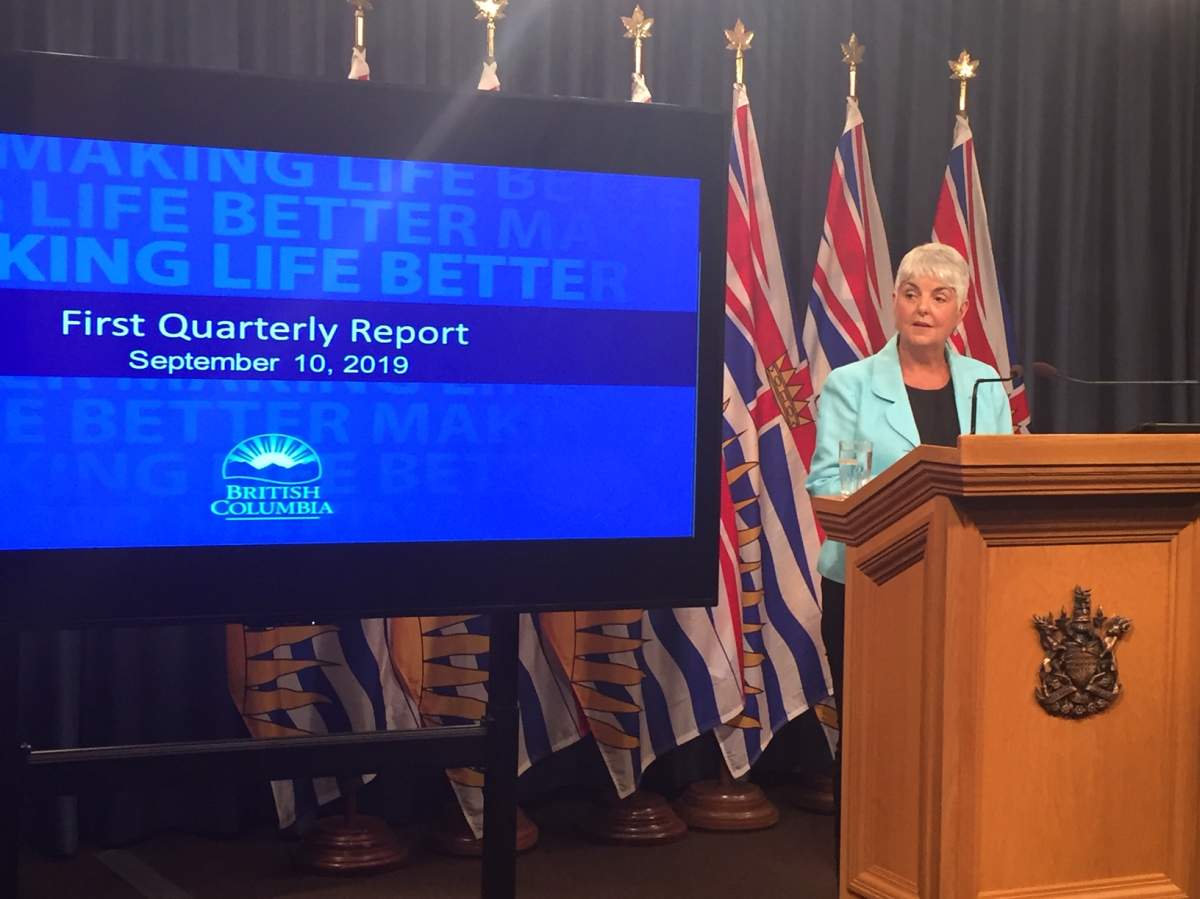Finance Minister Carole James says B.C.’s economy is still “strong and resilient” but is concerned about global “uncertainty” and problems at ICBC.

James released the province’s first quarter fiscal numbers on Tuesday.
B.C. remains the only province in Canada with a AAA credit rating from the three main rating agencies and is forecasting a budget surplus of $179 million for the fiscal year. The surplus is down from the $274 million forecast in February.
“With the kind of external pressures we are facing we are continuing to practice prudence,” James said.
“There is no question the global economy is a risk. The tensions create an environment that is not good for trade.”
British Columbia continues to have the highest economic growth in Canada. But the provincial government is still building in $2 billion in contingencies in order to deal with any potential surprises in the economy.
One major surprise around the corner could be ICBC.
The province forecast the public insurer would lose $61 million in the first three months of the fiscal year, but is now reporting ICBC made $55 million after major changes came into effect on April 1.
But there are two ongoing legal cases involving the province’s changes.
The courts have still not ruled on whether the province is allowed to restrict the number of expert reports lawyers can use in settlement cases and whether B.C. can legally cap settlements for “soft-tissue injuries” as defined by the province.

Get breaking National news
Together, the changes are forecast to save the province more than $1 billion this year.
WATCH (aired February 19, 2019): B.C. Budget 2019: Elimination of MSP premiums

“There are a couple of risks we still face with ICBC. There are back claims that could still come in and add to the deficit,” James said.
“One of the other issue is there are still some outstanding lawsuits that exist and that could have a massive impact on ICBC and the economic situation that it is facing.”
For the third straight year home sales are down across the province. Based on the first three months of the year, home sales are down 16.1 per cent and average home sale prices are down 5.6 per cent.
But while prices are down, housing starts are up. The province has seen housing starts up from 40,857 in 2018 to a projected 48,739 in 2019.
WATCH (aired December 27, 2019): Finance Minister Carole James sits down for year-end interview with Global News

“We are going to monitor this closely. I don’t think there is a British Columbian, particularly young people trying to get into the market, that would say we have hit affordability. We said when we put in our 30-point plan we wanted to see moderation in the market. We are now seeing moderation in the market,” James said.
“There isn’t one change that will address the affordability crisis. There is not one tax, there is not one measure that will address it.”
The province’s 30 point plan includes the Speculation Tax, increases to the foreign buyers’ tax and a commitment to building new housing units. The province has also put a renewed focus on renters in B.C.
One of the previous cash cows for government, Property Transfer Tax revenues, are down $385 million from where they were forecast.
“For too long, the previous government put maximizing property transfer tax revenues first while speculators, and even money launderers, took advantage of our overheated housing market,” James said.
“We are not interested in short-term gains at the expense of future generations.”








Comments